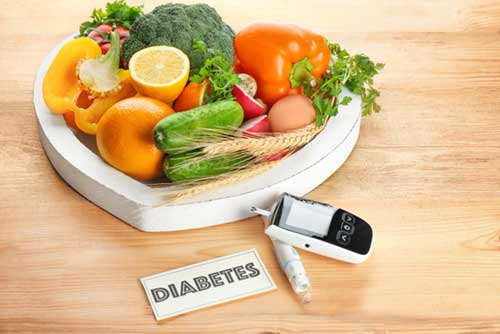Hi everyone, we are living in an era of more prevalent non-communicable diseases like hypertension, diabetes, dyslipidemia, cancer, obesity and mental illness. Among them, the prevalence of diabetes is increasing at an alarming rate globally. According to recent research published by the ICMR, in India, approximately more than 101 million people are living with diabetes and there is a shocking rate of high prevalence of pre-diabetes which stands at 136 million and this category of people can get diabetes at any point of time with their current lifestyle.

Even though the data is alarming, there is a ray of hope with solid scientific evidence that we can reverse this condition and also improve the quality of life for people living with diabetes. Let us explore the concept of possibilities of diabetes remission and the various approaches used to achieve it.
Understanding Diabetes Remission
Diabetes is a condition that is prevalent the world over. It is a common long-term metabolic disorder which presents as an increase in blood sugar levels. Traditionally, the management of diabetes has revolved around medication, insulin therapy, and lifestyle modifications. However, in recent years, a promising development has emerged: the concept of diabetes remission. Diabetes remission refers to the ability to reverse the condition to the point where blood sugar levels remain within a normal range without the need for ongoing medication or insulin. Remission can be partial or complete, and it varies in duration among individuals.
Glycaemic Criteria for Diabetes Remission
We diagnose diabetes when the average blood sugar called HbA1c (which shows the approximate 90 days average blood sugar) is more than 6.5.
Partial remission is a state in which HbA1c < 6.5%, and complete remission is a return to normal glycaemic metabolic state i.e., HbA1c < 5.7%. In both groups, the duration is > 1 year. When the remission lasts for more than 5 years duration with no medication, then the remission is said to be complete remission.
| Glycaemic criteria | Partial remission HbA1c < 6.5% and/or FPG 100–125 mg/dL Complete remission HbA1c < 5.7% and FPG < 100 mg/dL | Remission HbA1c < 6.5%) |
|---|
Approaches to Diabetes Remission:
Lifestyle Modifications:
Weight Loss:
Obesity is a major risk factor for type 2 diabetes. By adopting a healthy eating plan and engaging in regular physical activity, individuals can shed excess weight, leading to improved blood sugar control. Weight loss of 5 to 10% can prevent overt diabetes.
Diet:
Following a low-carbohydrate or low-calorie diet, such as the Mediterranean or DASH diet, has shown promise in achieving diabetes remission.
Exercise:
Regular physical activity helps lower blood sugar levels by increasing insulin sensitivity. Engaging in aerobic exercises, resistance training, or a combination of both can be beneficial.
Bariatric Surgery:
Bariatric surgery, including procedures like gastric bypass or sleeve gastrectomy, has demonstrated remarkable results in achieving diabetes remission in individuals with obesity and type 2 diabetes. These surgeries lead to significant weight loss and positive metabolic changes, improving insulin sensitivity and blood sugar control.
Very Low-Calorie Diets (VLCDs):
VLCDs involve consuming around 800 calories per day for a specific duration under medical supervision. These diets aim to induce rapid weight loss and improve insulin resistance. They have been successful in achieving short-term remission in some individuals.
Conclusion:
Diabetes remission offers a glimmer of hope for individuals living with this chronic condition. With the right combination of lifestyle modifications, medical interventions and surgical options, achieving sustained blood sugar control within the normal range becomes a tangible goal. While not everyone may achieve remission, the concept challenges conventional thinking and paves the way for a future where diabetes management focuses on reversing the condition and improving overall health outcomes.

Dr.K.Baraneedharan MD
Senior Consultant Diabetologist
Kauvery Hospital Chennai

